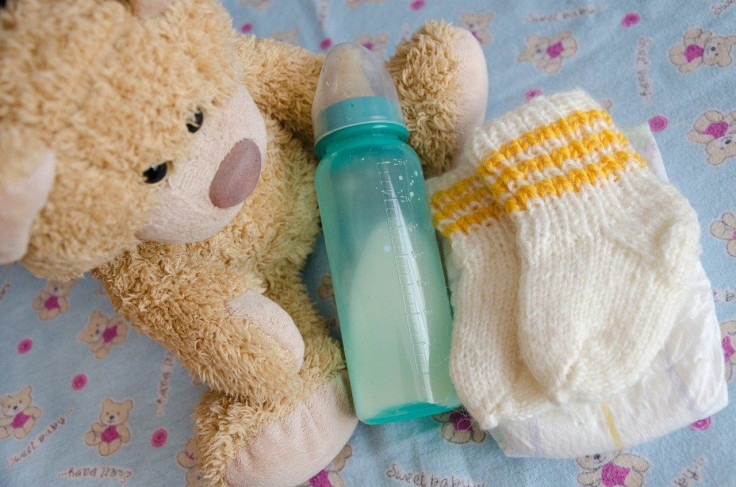Abbot Recalls Infant Formulas Over Health Risk; FDA Issues Warning After 1 Death
KEY POINTS
- The FDA is investigating four reports of illnesses
- All four infants consumed formula manufactured at Abbot's Sturgis facility
- The FDA has urged consumers not to use Similac, Alimentum or EleCare formulas made at the facility
The U.S. Food and Drug Administration (FDA) is warning consumers against purchasing and using certain powdered infant formulas produced at an Abbot facility amid an investigation into infant illnesses. One baby reportedly died after consuming the product.
The FDA is investigating four consumer complaints of Cronobacter sakazakii and Salmonella infections among infants from three states, the agency noted in a news release. Three of them reported cases of Cronobacter sakazakii, while one reported a case of Salmonella Newport. In all of the cases, the infants had to be hospitalized, with Cronobacter possibly contributing to one death.
All four babies had reportedly consumed infant formula that was produced from Abbot's Sturgis, Michigan, facility. Several environmental samples collected from the facility turned out to be positive for Cronobacter. Internal records also indicated that the company had destroyed some products due to the presence of Cronobacter.
Infant formula recall
The FDA and its partners are advising consumers not to purchase or use certain Similac, Alimentum or EleCare powdered infant formulas that were produced at the Sturgis facility. Abbot has also initiated a voluntary recall of the affected powder formulas.
The affected products can be identified by a code, which contains K8, SH or Z2, with their first two digits having any number from 22 to 37. They also have an expiration date of 4-1-2022 (APR 2022) or later.
Sample photos of what the code may look like on the can are available on the FDA website. Consumers can also check if the product they have is included in the recall by inputting the lot number of the item here. Those with questions can contact the company at 1-800-986-8540.
FDA is advising consumers not to use Similac, Alimentum, or EleCare powdered infant formulas if:
— U.S. FDA (@US_FDA) February 17, 2022
• the first two digits of the code are 22 through 37 and
• the code on the container contains K8, SH, or Z2, and
• the expiration date is 4-1-2022 (APR 2022) or later.
"Products that do not contain the information listed above are not impacted," the FDA explained. "Consumers should continue to use all products not covered by the advisory."
Meanwhile, the company clarified that "no Abbott liquid formulas, powder formulas, or nutrition products from other facilities are impacted by the recall."
Ongoing investigation
The company said testing of distributed finished product, as well as the retained samples related to the cases, have turned out negative for Cronobacter sakazakii and Salmonella Newport. Despite that, it has chosen to initiate the "proactive" recall and continues to test more products.
"We want to reassure the public that we're working diligently with our partners to investigate complaints related to these products, which we recognize include infant formula produced at this facility, while we work to resolve this safety concern as quickly as possible," FDA Deputy Commissioner for Food Policy and Response Frank Yiannas said in the news release.
Cronobacter and Salmonella in infants
Cronobacter, previously called Enterobacter sakazakii, is a germ that tends to live in "very dry places," the Centers for Disease Control and Protection (CDC) noted. It has been found in products such as herbal teas, starches and powdered infant formula. The infections can be very serious for some people, including babies, the elderly and the immunocompromised. In infants less than 12 months old, Cronobacter can lead to sepsis or meningitis and may even cause them to experience seizures.
"Those with meningitis may develop brain abscesses or infarcts, hydrocephalus, or other serious complications that can cause long-term neurological problems," the CDC said. "The mortality rate for Cronobacter meningitis may be as high as 40%."
Salmonella is a group of bacteria that can cause salmonellosis, which can cause symptoms such as diarrhea, fever and abdominal cramps. Just like with Cronobacter, infants are also among the groups that are most at risk of getting sick from it and developing serious complications.
"Children, especially infants, are most likely to get sick from it," the Nemours Foundation noted. "About 50,000 cases of salmonellosis are reported in the United States each year and about one third of those are in kids 4 years old or younger."

© Copyright IBTimes 2025. All rights reserved.






















